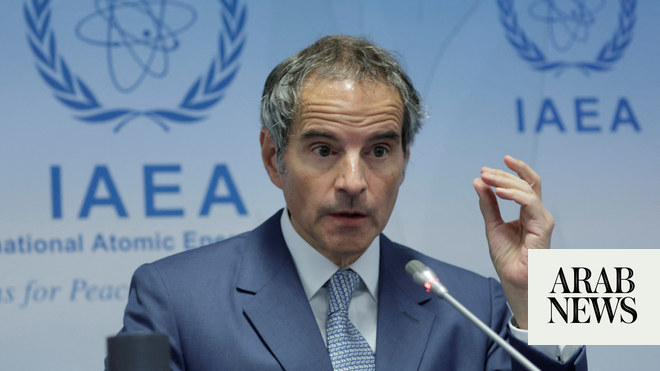
The belief that international deals and appeasement of the Iran regime will lead to a change in its destructive behavior in the region, as well as Tehran’s antagonistic policies toward the US and EU, is a myth.
First of all, any astute observer who has studied the four-decade rule of the Islamic Republic is cognizant of the fact that the core pillars of its establishment were anchored in some non-negotiable and unbending revolutionary ideals. Unlike any ordinary nation state, which can change its policies because it prioritizes economic and national interests, a revolutionary regime has a distinct character. Iran’s domestic and regional policies are anchored in the three pillars of preserving its revolutionary ideologies, national interest (concerning economic, strategic and geopolitical landscapes) and Iranian nationalism. But the regime is a firm advocate of prioritizing ideological norms over the other two pillars.
One of the regime’s critical principles is exporting its ideology and system of Velayat-e faqih (Guardianship of the Islamic Jurist) to other countries. The late founder of the regime, Ayatollah Khomeini, introduced a revolutionary notion in Shiite thought with the concept of Velayat-e Faqih. This became the basis of the constitution of the Islamic Republic and gave the supreme leader custodianship over the people.
From the perspective of the Tehran regime, if it was to shift its stance and change its theological and Shiite policies in the region, the establishment would lose its underlying revolutionary character, its legitimacy, its appeal among its supporters and the essence of its revolution, endangering the survival of its theocratic political establishment.
This is why the regime seems to be grooming Ebrahim Raisi to succeed Supreme Leader Ali Khamenei upon his death. It wants a revolutionary leader to forcefully pursue the ideological principles of Khomeini and the core ideals of Iran’s 1979 revolution.
Since Khamenei came to power in 1989, he has not deviated at all from Khomeini’s revolutionary ideology. This includes the export of Shiite principles, projection of the Islamic Republic as the vanguard of Islam, becoming a hegemon in the region, and the rejection of Israel’s existence. These policies define the raison d’etre of the Iranian regime in the Middle East, as well as what shapes its ideological and regional approach.
Furthermore, through the prism of the Iranian leaders, their adherence to these revolutionary ideals is the reason for their success in ruling for more than four decades and making their political establishment immune from powerful opposition, popular uprisings and revolutions.
Other core revolutionary principles that the Iranian regime value include not surrendering Iran’s nuclear program (despite a deal with international powers), supporting Shiite proxies militarily, financially and politically, and projecting itself as the vanguard of Islam.
One does not need to go far back in history to see that the regime does not change the core pillars of its establishment despite overwhelming appeasement from Western powers. When the Joint Comprehensive Plan of Action nuclear deal was signed in 2015, all four rounds of crippling UN sanctions, which took decades to impose on the Islamic Republic, were lifted. At the same time, then-US President Barack Obama revoked four previous executive orders against Iran, removing unilateral American sanctions. The deal also freed up Iran’s financial assets, which were estimated to be worth tens of billions of dollars.
The US Treasury Department also removed about 400 Iranian citizens from its blocked persons list, freeing up their assets and permitting them to do business with Americans. And the deal gave the Iranian government the ability to reenter the global financial system and trade many commodities that were previously banned. The rest of the Western world followed suit, as the EU removed all nuclear-related economic and financial sanctions against Tehran and began doing business with the theocratic establishment.
Iran is ruled by a revolutionary regime that has prioritized its principles over other interests for more than four decades.
Dr. Majid Rafizadeh
But Iran only became more emboldened and empowered as a result, to the extent that it repeatedly harassed naval ships belonging to the world’s superpowers without fear of any repercussions.
Regionally speaking, as Tehran became more heavily armed as a result of its additional revenues, it increased its military interventions in Syria, Iraq and Yemen and intensified its advisory, financial, weapons and intelligence assistance to its Shiite proxies, along with Syrian President Bashar Assad. Iran also increased its strategic and tactical cooperation with Russia in an effort to undermine US interests, strengthening the Russia-China-Iran axis.
In summary, Iran is ruled by a revolutionary regime that has prioritized its principles over other interests for more than four decades. No amount of appeasement will alter the core pillars and revolutionary principles of the Islamic Republic due to the fact the ruling clerics’ theocratic constitution has confined Iran and made change impossible. The political establishment of ruling clerics is becoming more and more incompatible with the standards, rules and laws of the international community.
Dr. Majid Rafizadeh is a Harvard-educated Iranian-American political scientist. Twitter: @Dr_Rafizadeh












